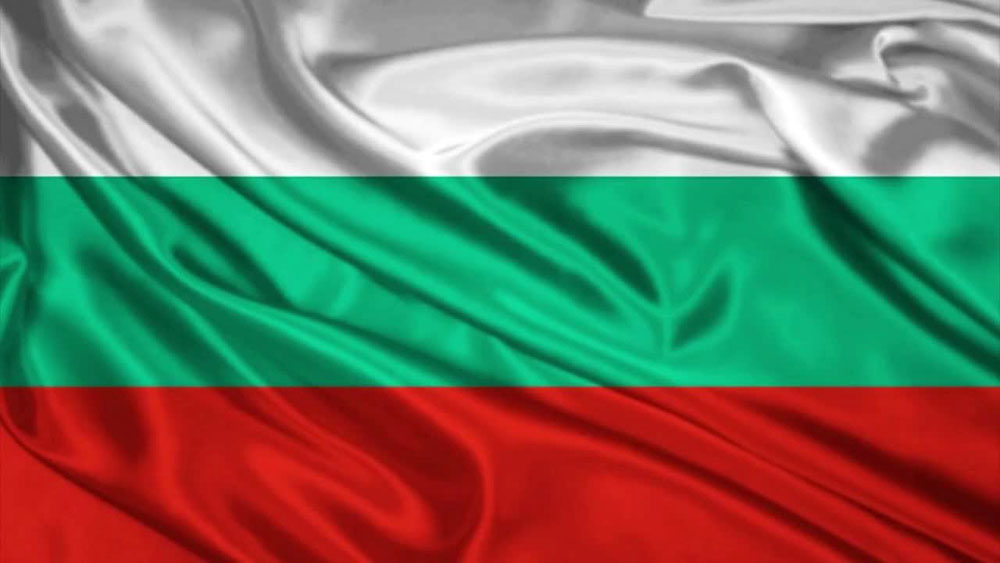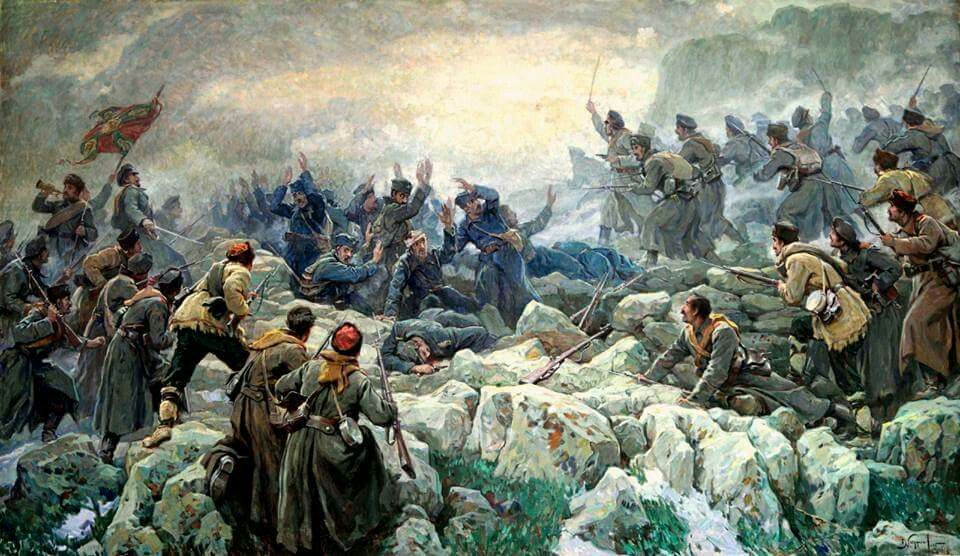
Bulgaria
Unity makes strength

History
Geography
Culture
Religion
Education
The history of Bulgaria
can be traced from the first settlements on the lands of
modern Bulgaria to its formation as a nation-state, and
The crucial Battle of Ongal in 680, the peace treaty
with Byzantium in 681, and the establishment of a
permanent Bulgarian capital at Pliska south of the
Danube mark the beginning of the First Bulgarian Empire.
The new state brought together Thracian remnants and
Slavs under Bulgar rule, and a slow process of mutual
assimilation began. In the following centuries Bulgaria
established itself as a powerful empire, dominating the
Balkans through its aggressive military traditions,
which led to development of a distinct ethnic identity.
Its ethnically and culturally diverse people united
under a common religion, language and alphabet which
formed and preserved the Bulgarian national
consciousness despite foreign invasions and influences.
In the 11th century,
the First Bulgarian Empire collapsed under Rus' and
Byzantine attacks, and became part of the Byzantine
Empire until 1185. Then, a major uprising led by two
brothers, Asen and Peter of the Asen dynasty, restored
the Bulgarian state to form the Second Bulgarian Empire.
After reaching its apogee in the 1230s, Bulgaria started
to decline due to a number of factors, mos t
notably its geographic position which rendered it
vulnerable to simultaneous attacks and invasions from
many sides. By 1396, they were subjugated by the Ottoman
Empire. The Turks eliminated the Bulgarian system of
nobility and ruling clergy, and Bulgaria remained an integral Ottoman
Empire territory for the next 500 years.
t
notably its geographic position which rendered it
vulnerable to simultaneous attacks and invasions from
many sides. By 1396, they were subjugated by the Ottoman
Empire. The Turks eliminated the Bulgarian system of
nobility and ruling clergy, and Bulgaria remained an integral Ottoman
Empire territory for the next 500 years.
 t
notably its geographic position which rendered it
vulnerable to simultaneous attacks and invasions from
many sides. By 1396, they were subjugated by the Ottoman
Empire. The Turks eliminated the Bulgarian system of
nobility and ruling clergy, and Bulgaria remained an integral Ottoman
Empire territory for the next 500 years.
t
notably its geographic position which rendered it
vulnerable to simultaneous attacks and invasions from
many sides. By 1396, they were subjugated by the Ottoman
Empire. The Turks eliminated the Bulgarian system of
nobility and ruling clergy, and Bulgaria remained an integral Ottoman
Empire territory for the next 500 years.With the decline of the
Ottoman Empire after 1700, signs of revival started to
emerge. The Bulgarian nobility had vanished, leaving an
egalitarian peasant society with a small but growing
urban middle class. By the 19th century, the Bulgarian
National Revival became a key component of the struggle
for independence, which would culminate in the failed
April uprising in 1876, which prompted the Russo-Turkish
War of 1877–78 and the subsequent Liberation of
Bulgaria. The initial Treaty of San Stefano was rejected
by the Great Powers, and the following Treaty of Berlin
limited Bulgaria's territories to Moesia and the region
of Sofia. This left many ethnic Bulgarians out of the
borders of the new state, which defined Bulgaria's
militaristic approach to regional affairs and its
allegiance to Germany in both World Wars.
After World War II, Bulgaria became a Communist state, with Todor Zhivkov serving as General Secretary of the Bulgarian Communist Party for a period of 35 years, sparking rapid economic development, increased life expectancies, and a heavier focus on industry. Bulgaria's economic advancement during the era came to an end in the 1980s, and the collapse of the Communist system in Eastern Europe marked a turning point for the country's development. A series of crises in the 1990s left much of Bulgaria's industry and agriculture in shambles, although a period of relative stabilization began with the election of Simeon Saxe-Coburg-Gotha as prime minister in 2001. Bulgaria joined NATO in 2004 and the European Union in 2007.
After World War II, Bulgaria became a Communist state, with Todor Zhivkov serving as General Secretary of the Bulgarian Communist Party for a period of 35 years, sparking rapid economic development, increased life expectancies, and a heavier focus on industry. Bulgaria's economic advancement during the era came to an end in the 1980s, and the collapse of the Communist system in Eastern Europe marked a turning point for the country's development. A series of crises in the 1990s left much of Bulgaria's industry and agriculture in shambles, although a period of relative stabilization began with the election of Simeon Saxe-Coburg-Gotha as prime minister in 2001. Bulgaria joined NATO in 2004 and the European Union in 2007.